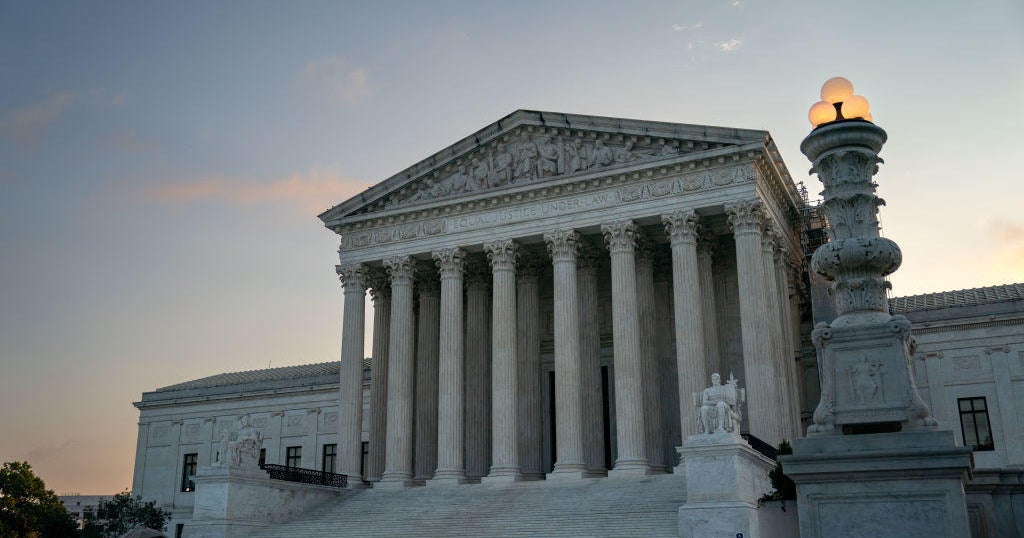Washington — The Supreme Court on Monday dismissed a clash between a federal emergency room law and Texas’ near-total ban on abortion, declining to clarify whether states with the most restrictive laws must provide abortion care in certain emergency situations.
The court’s denial of the Biden administration’s appeal leaves in place a lower court decision that blocked the federal government from enforcing guidelines it issued to hospitals informing them that they must perform emergency abortions if the mother’s health is at risk. The Department of Health and Human Services told health care providers in a July 2022 letter that when a state abortion law does not include an exception for the life and health of the mother, that measure is undermined by the federal emergency room law.
The order comes months after the Supreme Court rejected a similar appeal of Idaho, which entered a lower court order blocking the state from enforcing its near-total abortion ban when the procedure is necessary to protect the mother’s health.
The cases pit two of the nation’s strictest abortion policies against a federal law that requires Medicare-funded hospitals to offer abortions when necessary to stabilize a patient’s medical emergency. In Texas, abortion is prohibited except when the mother’s life is in danger.
In the Idaho case, the Supreme Court’s decision indicated that the majority believed the court had intervened too early. The justices did not address the underlying question of whether the federal law, the Emergency Medical Treatment and Labor Act, trumps near-total bans under certain circumstances.
The Texas dispute provided another opportunity for the Supreme Court to answer that question, although it declined to do so.






